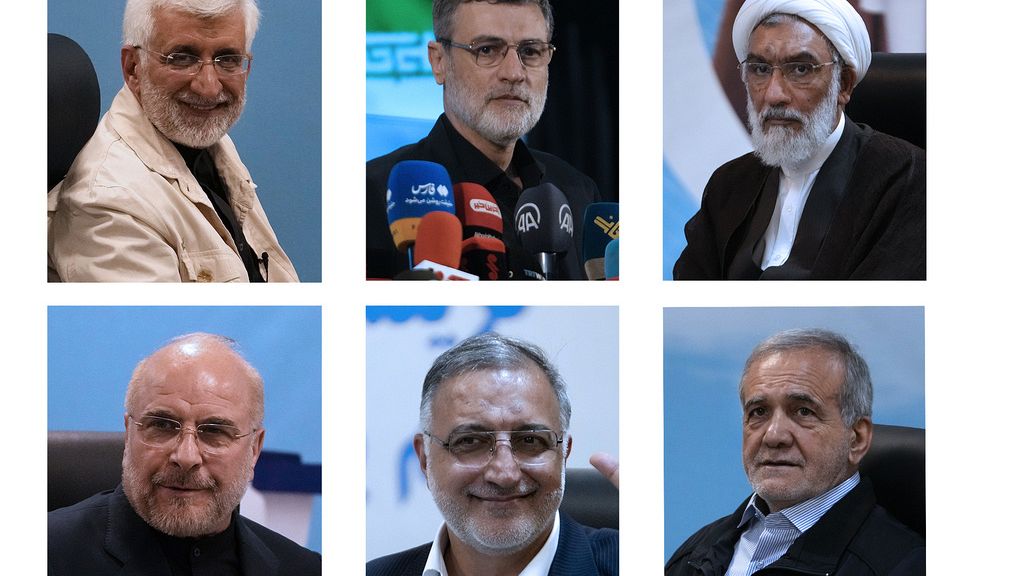Iran's Guardian Council, which oversees elections and legislation, on Sunday approved six candidates to run in the country's presidential elections scheduled for June 28.
The winner will replace the late Ebrahim Raisi, who was killed in a helicopter crash in northern Iran last month along with seven of his aides, including Foreign Minister Hossein Amir Abdollahian.
Raisi was expected to remain in office for the next term and was seen as a possible successor to 85-year-old Supreme Leader Ayatollah Ali Khamenei.
A total of 80 people filed to run in the election.
Of the six approved, five are considered hardliners and only one is a reformer.
The list includes:
Mohammed Bagher Qalibaf – Hardline parliament speaker and former commander of the Revolutionary Guards. He is the most likely candidate.
Said Djalili – The ultra-conservative former chief nuclear negotiator who ran Supreme Leader Ayatollah Ali Khamenei’s office for four years.
Alireza Zakhani – Tehran's conservative mayor.
Mostafa Pourmohammadi – A conservative and former Minister of the Interior and Justice.
Amir-Hossein Ghazizadeh Hashemi – Current vice-chairman of the Martyrs Foundation and representative of the ultra-conservative faction.
Massoud Pezechkian – A former Minister of Health, he represents Tabriz in the Iranian parliament and is the only reformist candidate.
Former president Mahmoud Ahmadinejad, a firebrand populist known for cracking down after his controversial 2009 reelection, has been barred from running again.
Four women had registered to run, but all were ultimately disqualified by a council made up of a committee of clerics and jurists overseen by Khamenei.
The council's decision marks the start of a truncated, two-week campaign to choose Raisi's successor.
The candidates approved by the Guardian Council suggest that Iran's Shiite theocratic state wants to ease into the elections following record low voter turnout in recent days.
The election comes at a time of rising tensions between Iran and the West over Iran's arms supplies to Russia in the Ukraine war and Iran's burgeoning nuclear program.

